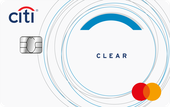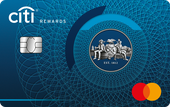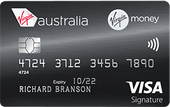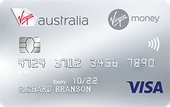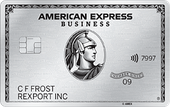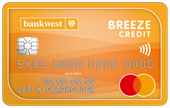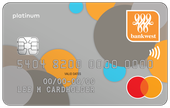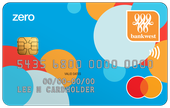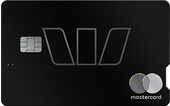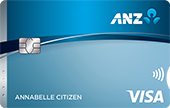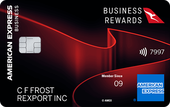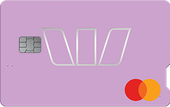
A credit card that suits you.
What is the best credit card in Australia?
Why settle for a card that’s only second best when you find the best credit card* for your wallet? Start researching and compare a selection of some of the best credit cards* on offer from major banks and small banks. This best credit card* comparison table includes balance transfer offers, low interest rates, no annual fees, rewards and frequent flyer programs.
When looking for the best credit card* on Credit Card Compare, it's important to understand the different types available and how they cater to various financial needs.

What type suits you best?
Which type is the best credit card?
When comparing to find the best credit card to suit your financial needs, it's important to understand the different types available since each has its own combination of features and benefits.
- Balance transfer credit cards. Useful for consolidating and paying off existing credit card debt, with most offering 0% interest for a set period lasting up to 24 months or longer. Balance transfer fees may apply, and higher rates kick in after the offer period ends. Use our Balance Transfer Savings Calculator to see how much money you could save.
- Frequent flyer credit cards. Suitable for frequent travellers or those who want to save up for flights and upgrades. Most earn either Qantas Points, Velocity Points, KrisFlyer Miles or Flybuys points. These cards often come with additional benefits like airport lounge access and travel insurance, but annual fees and interest rates are typically higher (although there are no annual fee frequent flyer cards).
- Low interest rate credit cards. Aimed at people who carry a balance from month to month with some offering up to 55 days interest free on purchases. These cards have lower ongoing interest rates, reducing the cost of borrowing compared to standard credit cards.
- No annual fee credit cards. Suitable if you want to save money, aren't particularly interested in high-end rewards since they typically offer fewer perks, and pay off your balance in full each month.
- No interest credit cards. These basic no-frills cards are designed for first timers who are more used to BNPL services like Afterpay. Instead of interest, they typically charge a monthly fee instead. Great for those who want something that's very simple but will also report to credit agencies and help them build credit.
- Premium credit cards. Gold, Platinum, and Black credit cards cater to higher income earners and come with exclusive perks such as concierge services, luxury travel benefits, and higher earn rates for rewards points. Annual fees for these cards are higher, with the highest being for metal credit cards.
- Rewards credit cards. Earn points on your everyday purchases, from a morning coffee to groceries. These cards tend to have juicy sign-up bonus offers with points that can be redeemed for rewards like cashback, gift cards, or for travel. Some rewards programs have transfer partners, including airlines and hotels, giving increased flexibility at the point of redemption. Annual fees and interest rates are higher with these cards.

Here’s how Credit Card Compare's expert chose their best credit card

With all of this advice in mind, here's Credit Card Compare co-founder David Boyd on how he chose the best credit card that suited him.
Even though I’m familiar with which cards offer the most generous rewards, standout sign-up bonuses, and useful perks, I always start by thinking about what I personally need from a credit card. Do I want a card that would be cost-effective in the long run? Do I want one that rewards everyday spending? If I do, what program do I want to earn points with?
Since I avoid carrying a balance, a competitive purchase rate wasn’t really a priority. Instead, my focus was on finding a card that rewarded my spending without unnecessarily high fees. No annual fee would be a nice bonus.
My regular expenses revolve around groceries, dining out, and some online shopping. With Coles being my go-to supermarket for groceries and household essentials, a card that could reward me for those purchases while keeping fees at bay seemed ideal.
I settled for the Coles No Annual Fee Mastercard not only because it has no annual fee but because it earned Flybuys points. As someone who regularly shops at Coles, Flybuys offers a lot of upside potential. Those points can be redeemed for a wide range of options, but I prefer to transfer them over to Velocity Frequent Flyer for upgrades.

The top 10 best credit cards this month
While no single card is "the best" for everyone, here are some of the most popular credit cards based on clicks on our comparison tables.
Low interest rate credit card
0% balance balance transfer offer
No annual fee credit card
Sign-up bonus reward
Business rewards card
Velocity Points earning card
Qantas Points earning card
First timer and student credit card
Cashback card offer
No interest credit card

Expert opinion on choosing the best credit card that suits you

Credit Card Compare co-founder Andrew Boyd on choosing the best credit card that suits your own financial circumstances.
"When used responsibly, a credit card can be a valuable tool for managing expenses, earning rewards, or consolidating debt with a balance transfer. However, if you’re struggling to pay off the balance and incurring interest charges, it may be time to reassess your approach — or consider whether a credit card is the right option for you at all."

What you should consider.
How to choose the best credit card
Ultimately, what's the "best" comes down to your personal financial situation and how you plan to use it. Whether you're a frequent flyer, a daily shopper, or someone who wants to maximise rewards, Australia has a variety of excellent credit card options to choose from in 2025. Be sure to consider what matters most to you — whether it's rewards, fees, or interest rates — before making your decision.
- Interest rates. The interest rate impacts how much you'll pay in interest if you carry a balance on your card. Look for cards with competitive interest rates to save money. Some come with 0% on purchases for an introductory period.
- Fees. Annual fees, late payment fees, balance transfer fees, and foreign transaction fees all add up. Choose a card with fees that align with your budget and your spending patterns.
- Rewards and benefits. Evaluate the rewards structure of the credit card to determine if it aligns with your preferences. Consider whether you prefer cashback, travel rewards, points for specific retailers, or other benefits like insurance coverage and extended warranties. And would you prefer to earn points with an airline (Qantas or Virgin Australia) or points that can be transferred to several airline or hotel partners?
- Credit limit. A card's credit limit dictates how much you can spend on the card. Particularly relevant if you want to spend a lot to maximise rewards or need to balance transfer a large amount of debt onto one card.
- Eligibility criteria. Check the minimum income requirements, accepted residency status, and your credit report. Make sure you meet the criteria before applying to increase your chances of approval.
What Redditors think about the best credit cards in Australia
Reddit users in Australia discuss credit cards mainly in terms of rewards, points value, and sign-up bonuses. Their priorities vary, from maximising Qantas and Velocity points to seeking cashback and low annual fees. The best card for you depends on your needs—whether you prioritise travel perks, cashback, or the highest sign-up bonus.
Choosing the Right Credit Card
The first step is deciding what you want from a credit card:
- Frequent flyer points: Qantas vs. Velocity
- Cashback and rewards
- Low annual fee vs. High sign-up bonus
- Best earn rate for spending
For those prioritising travel, one user shared their strategy:
"For me, it’s round-the-world travel, which fits Qantas better. I’m after the best sign-up bonus w a reasonable annual fee."
Sign-up bonuses over earn rates
Many users recommend focusing on sign-up bonuses rather than ongoing spending rewards. One Redditor warned against chasing points through spending:
"Don’t get credit cards for their rewards points that you earn on spending. You will be chasing the points and spending more than you normally would for not much rewards.
"What you want to do is apply for credit cards for their signup bonuses. There are more than 10 different cards available which offer more than 60k in Qantas points for signup up. Most offering around 90k which is equivalent to about $900 value.
"If you plan to cancel after your signup bonus and move onto another card you can always ask for your annual fee to be refunded. This is what I do. I will go though 6 to 10 cards a year for signup bonuses. Then use these points for travel or exchange them for other rewards.
"Just make sure you track your cards and always repay them on time to keep a good credit score."
Best credit cards for points
Qantas points
One Redditor recommended a specific Qantas card and shared a tip for a no-fee card:
"If eligible and not already taggable as a churner, then I would say Amex Qantas Ultimate.
"Want a free card with bonus points? St. George Amplify Platinum (by opening an account first with them to have zero fee)."
Velocity points
For those focused on Velocity points, one Redditor highlighted the best cards according to them.
"For cards with no limit caps on points earn: Amex Personal Velocity Platinum (1.25p/$), Amex Personal Platinum Charge (1.125p/$), and Velocity Business Charge (1.0p/$)..."
Maximising value with American Express
Several Redditors praised Amex for its high points earn rate and benefits. One user shared their experience:
"For best points value, I would recommend getting an American Express card. We have the Platinum Velocity card from them and joined up during a large signup bonus several years ago......We pay $400 per year for the card and get that back in benefits. We have never paid interest on the card as we pay it off in full each month. If a retailer charges a surcharge for using Amex, we use our Visa card instead."
Redditors generally agree that the best strategy is to cycle through credit cards for sign-up bonuses while avoiding unnecessary spending. Ultimately, the right card for you depends on your personal needs and financial situation. Since offers change frequently, it’s important to keep an eye out for the best deals.

